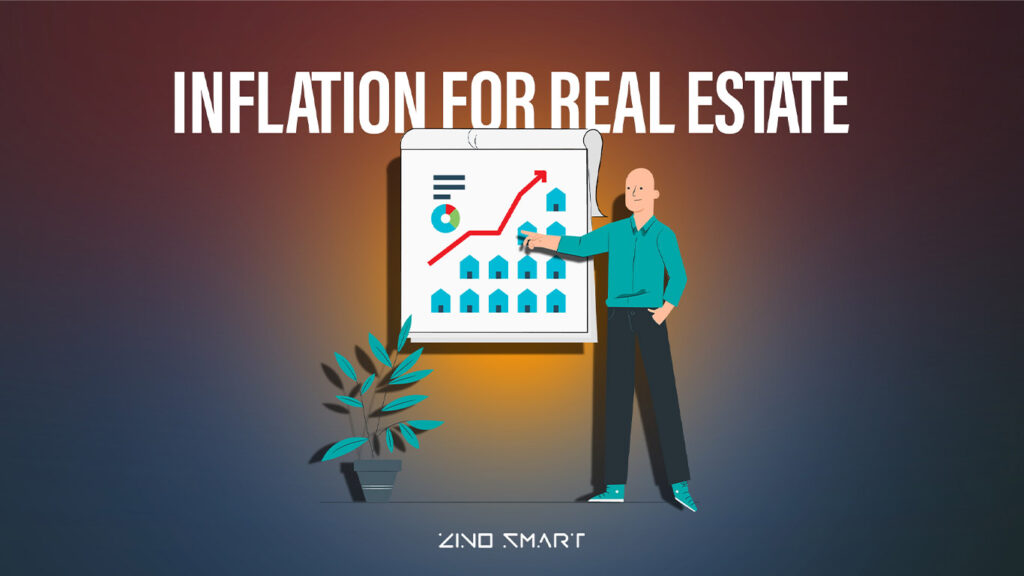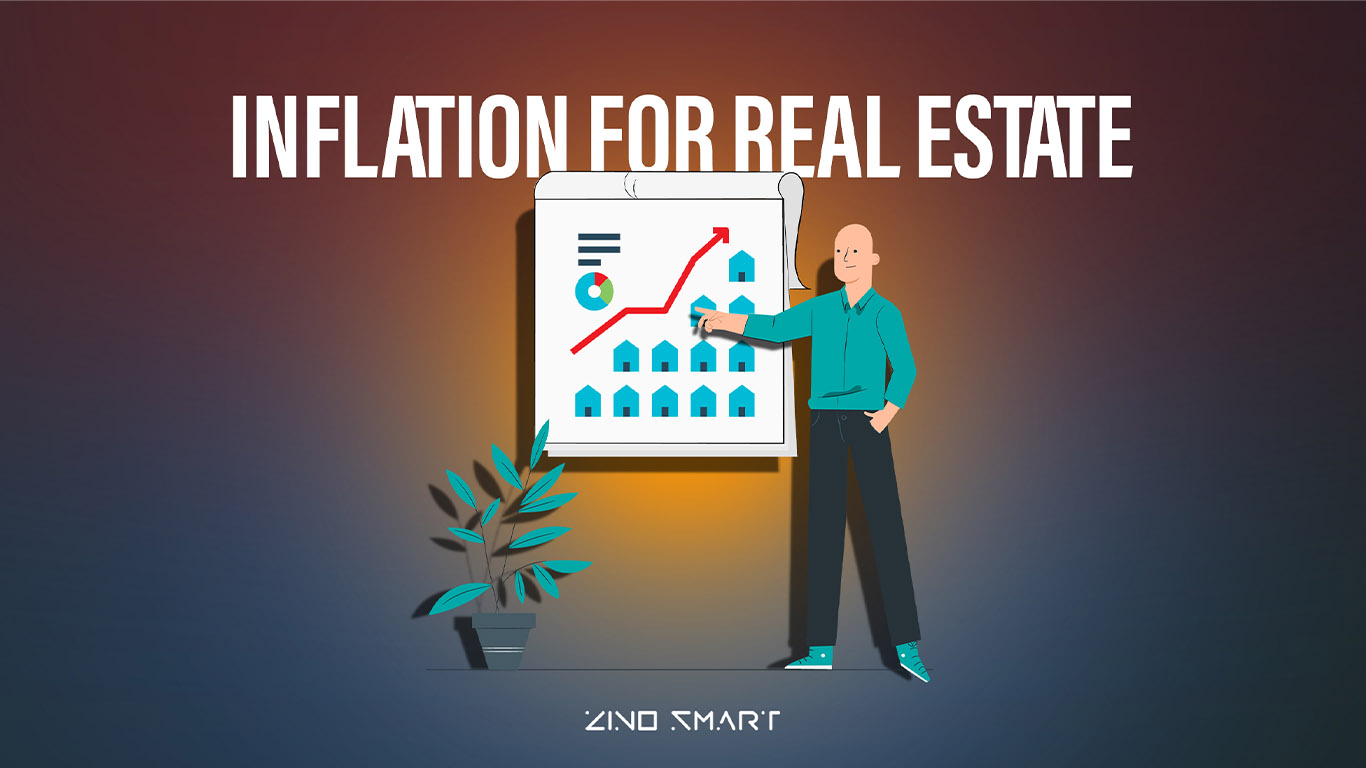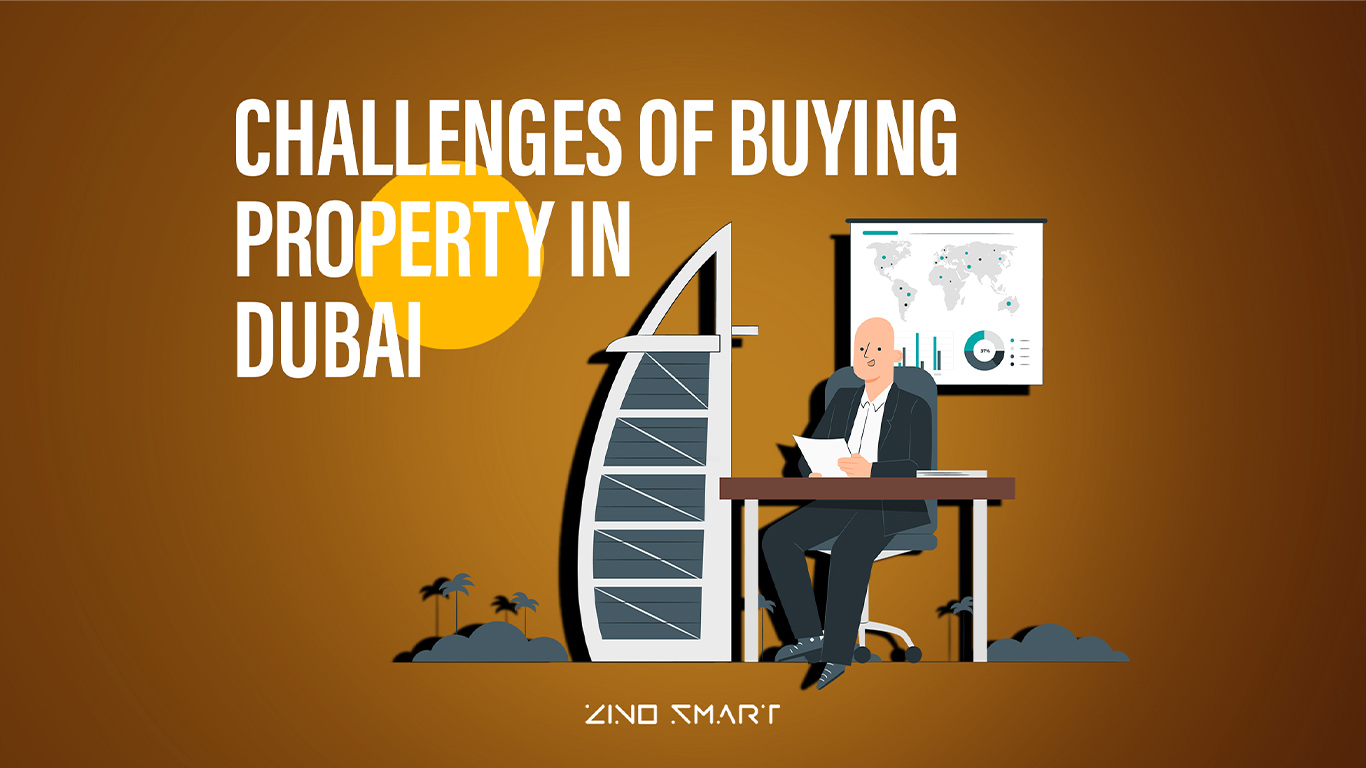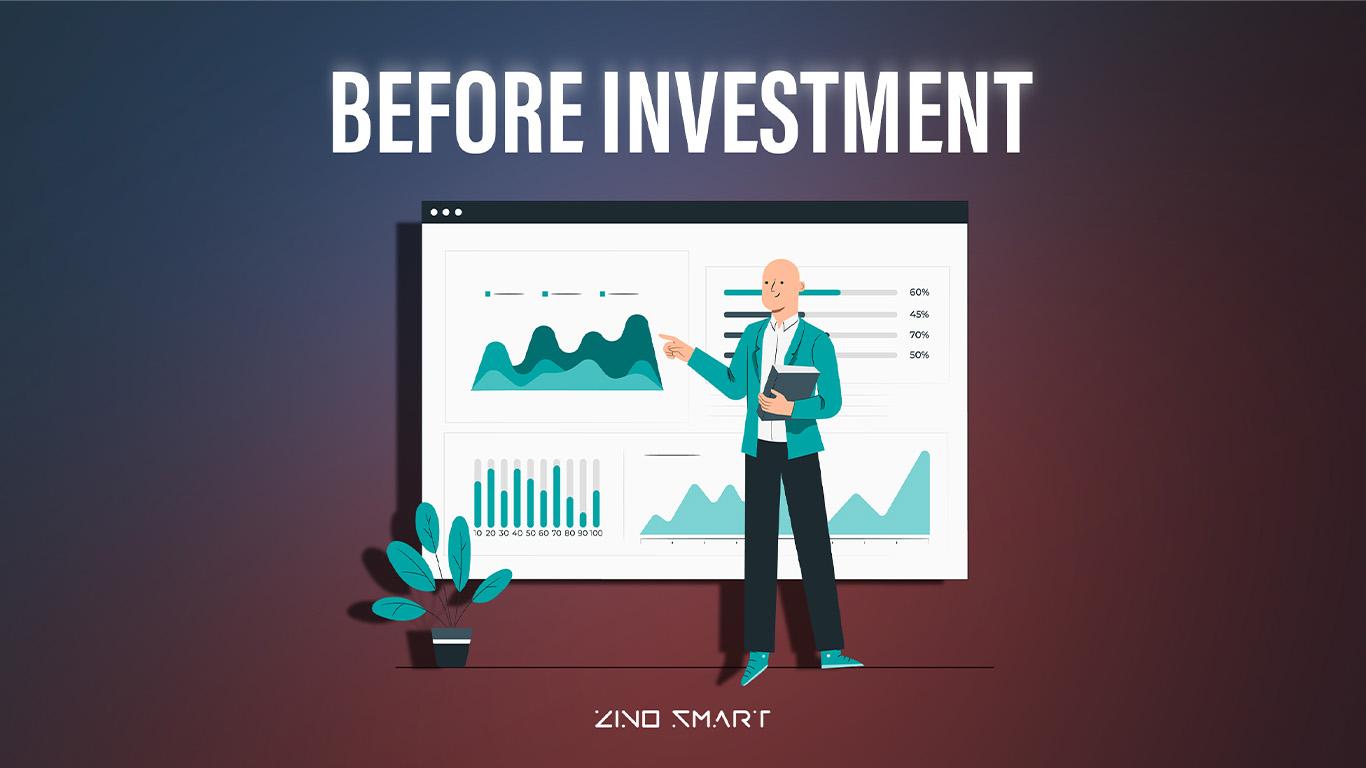Inflation For Real Estate: With a surge in inflation disrupting the global economy, as a prudent investor, you’re probably wondering what this means for your investments in property. Inflation is indeed a major cause for concern as it affects all areas of the economy, and this naturally includes investments. So what exactly is it? And how does it impact real estate investments?
But, before you start tweaking your investment portfolio, let us deflate your inflation worries by explaining this sticky situation a little better.
What is inflation?
Inflation is one of the many indicators used to monitor the economy’s health. In plain terms, inflation is an increase in the average price level across all services and products in an economy over a period of time.
So, this increase in prices means that for every unit of currency spent, fewer goods and/or services can be purchased, meaning today’s dirham won’t get you the same thing tomorrow, which is essentially a loss of purchasing power of money.
This decrease in purchasing power invariably impacts the demand and supply of such goods/services.
Usually, in a typical growing economy, the demand outpaces the supply of goods resulting in sellers raising their prices, thus leading to inflation.
Inflation is measured by tracking the speed at which the prices of a basket of goods increase in a given period of time. In the UAE, the Federal Competitiveness and Statistics Authority (FCSA) collects around 334 different categories of services and goods and calculates the cost of this bucket to arrive at the Consumer Price Index (CPI).
What are the causes of inflation?
Inflation can be caused by many factors, including global pandemics, shortages of raw materials, energy-supply concerns, and so on.
Over the past couple of years, however, governments worldwide resorted to stimulating the economy by spending and injecting money into the financial system throughout the pandemic, putting upward pressure on suppliers, already facing supply chain disruptions – who couldn’t keep up with the demand.
Businesses consequently raised their prices as there was either an imbalance in supply or because improving their profits without losing customers was on the cards – resulting in inflation. In the UAE’s case, for instance, the inflation rate grew to 2.58% in November 2021, from 1.86% the previous month.
Inflation For Real Estate
When investing in Dubai property, it’s important to consider the effect of key economic indicators, like inflation. While inflation influences the cost of goods and services, it also directly affects real estate across all property types, from the cost of building new properties to the cost of financing real estate deals.
1. Increase in cost of materials
Because prices increase with inflation, the cost of construction materials also rises. The construction of a building involves a wide range of materials like steel, wood, copper, glass, concrete, and so on – all of which increase in an inflationary environment.
Not only that but machinery costs and labor are usually available at higher rates. This means that construction companies need to spend more to build, say, an apartment complex. In order to compensate for the additional costs, the developer then increases the sale price of the house.
Therefore, inflation makes new houses more expensive, reducing the supply of new constructions. This invariably leads to an increase in the price of existing houses as the demand inevitably increases.
2. Costlier loans
Another setback of inflation is that commercial banks start increasing their interest rates. This is because inflation corrodes the value of money, hence lenders increase the interest rates to make up for their loss and fight off inflation.
This is bad news for borrowers, as they’re expected to pay more interest on their housing loans/mortgages. Along with the increase in property prices, potential buyers also become skeptical about purchasing new properties.
This reluctance, as a result of higher interest rates, leads to people hoarding their money more into their savings, which isn’t the best idea either during inflation as the value of money weakens.

Additionally, there are many developers who rely on bank finance for the completion of their projects. With loan rates increasing, they experience an overall inc
release in the cost of construction and end up increasing the price of the ready units to cover up for their losses.
3. Rentals increase
Since the cost of borrowing increases, people tend to rent a property rather than buy one.
Also, landlords seize this opportunity to raise prices and increase the rent to compensate for the rate of inflation. Since the demand is higher, with many people steering clear of purchasing property in rising inflation, tenants are willing to pay a little extra rent rather than bear the cost of an expensive mortgage.
How can real estate investments protect you against inflation?
What sets real estate investments apart from other assets is that they provide more steady passive income returns and capital appreciation from the assets.
Not only that, investing in real estate has the potential to build generational wealth via multiple income streams with minimal risk during an inflationary period.
Also, in areas with limited supply, there’s a higher demand for rental units in those markets, contributing to the appreciation of prices for real estate.
investing in Dubai
As long as the price increases are higher than the inflation rate, then investors should expect good returns, particularly when investing in Dubai.
Furthermore, during inflation, the prices of all products and services increase, including the prices of properties. Therefore, once you buy a house on a mortgage at a fixed rate of interest, you actually pay less each year, since the money devalues with inflation. Also, the price of your property increases, making it a win-win situation for you.



